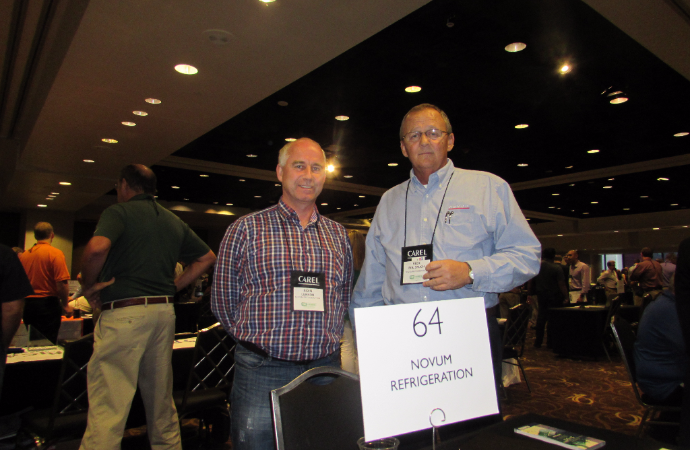Hannaford Supermarket has installed self-contained propane display islands in two stores in upstate New York that allow easy replacement of the air-cooled condensing unit.

Hannaford is using eight to 10 of the low-temperature island cases, from Novum Refrigeration Technology, to replace “worn-out” cases connected to the machine room compressor rack, said Harrison Horning, director of energy and facility services for Hannaford, based in Scarborough, Maine, at the Food Marketing Institute’s Energy & Store Development Conference in New Orleans last month.
Each case’s condensing unit, which uses 85 g of propane, “can be pulled out and replaced in minutes,” said Horning. “We bought an extra cassette [condensing unit] to put in the back room so if one dies, we pop in a new one and send the old one to the factory.”
Hannaford has had the Novum cases in one store for a year – the first US store to use them – and in a second store for about a month. The chain also runs a propane beverage merchandiser from True Manufacturing in one store and in its corporate office.
All we do is hydrocarbons now. We’ve seen a huge changeover in the past year, especially in Europe, and we’re seeing the change [in the US] as well."
- Eoin Lennon, Novum
Novum, a Dublin, Ireland-based manufacturer of supermarket display cases, has also installed its propane “Grand Cayman” island cases at a convenience store that is using them for its “whole freezer section,” said Rick Bolibruch, Novum’s vice president of sales, at the FMI Energy conference. In addition, Novum has installed the propane freezer cases at at another grocery chain.
Novum’s primary business is in Europe, where it has produced 20,000 self-contained propane cases this year, said Eoin Lennon, Novum’s research and development manager. “All we do is hydrocarbons now. We’ve seen a huge changeover in the past year, especially in Europe, and we’re seeing the change [in the US] as well."
According to Lennon, the propane cases are 30%-40% more efficient than comparable HFC cases. The cases each consume 5.5 kWh/24 hours and have a maximum capacity of 2,915 BTU/hr.
Related stories


_1636620968.jpeg)
